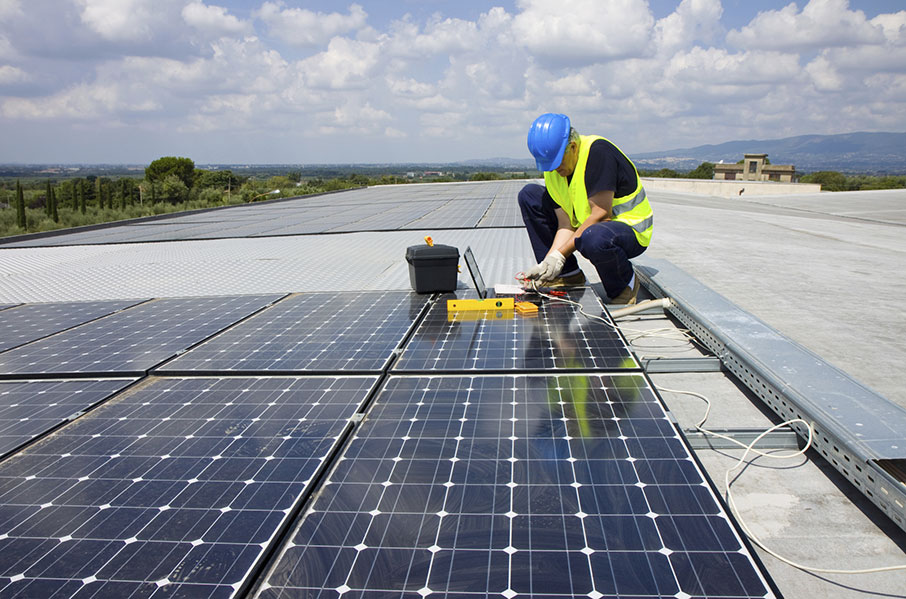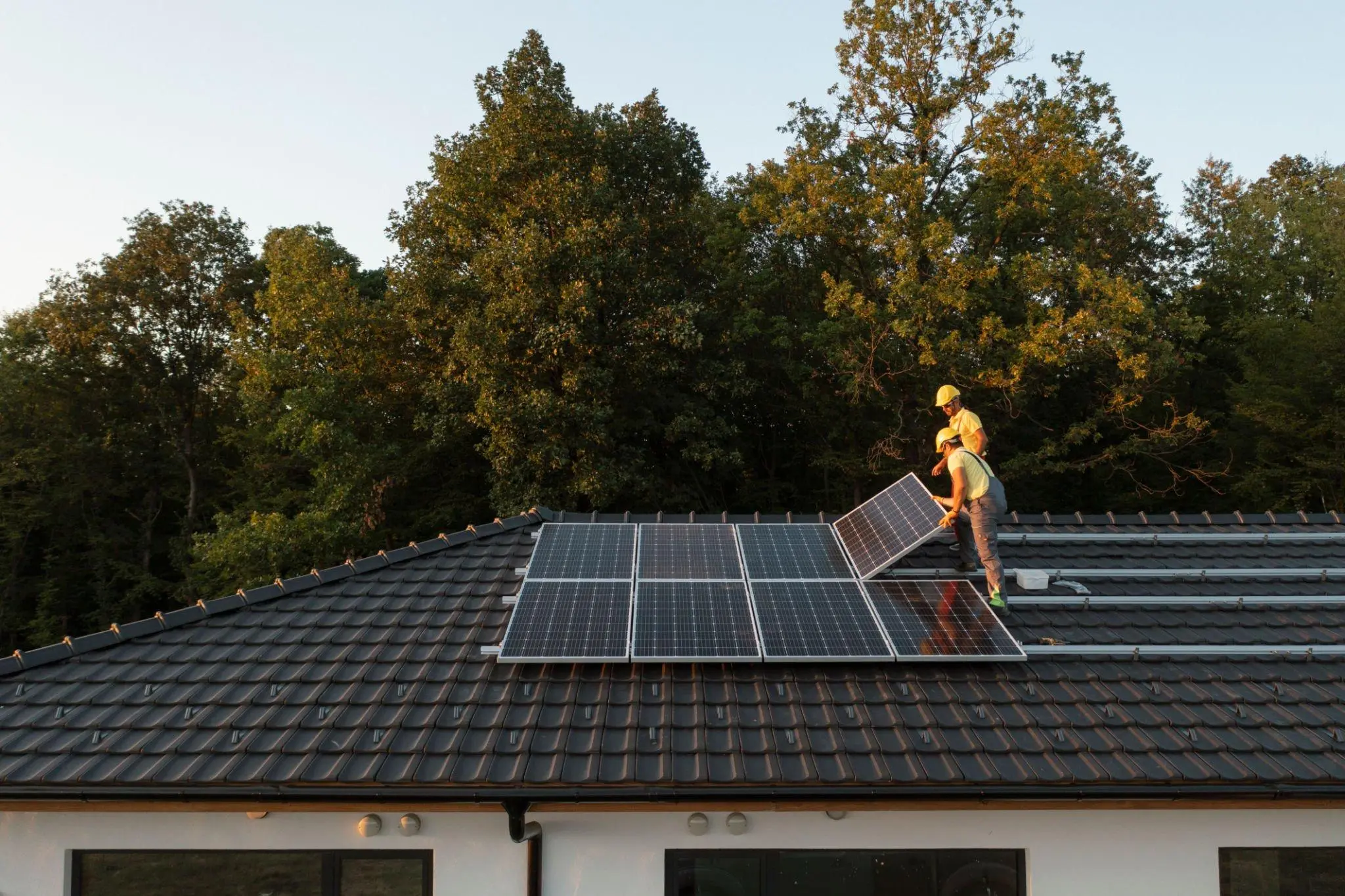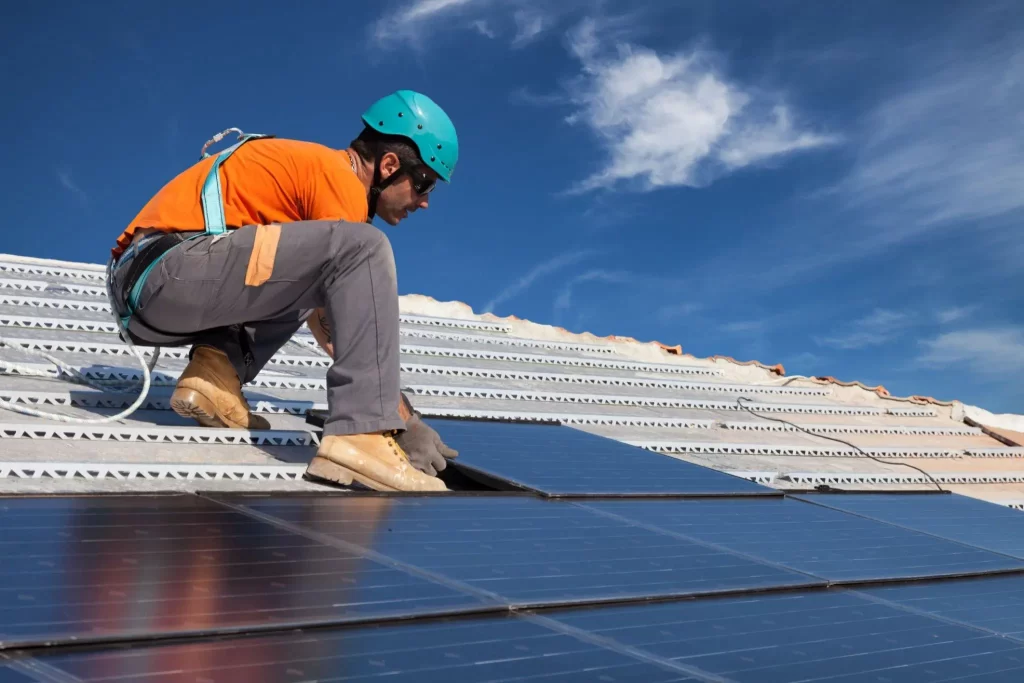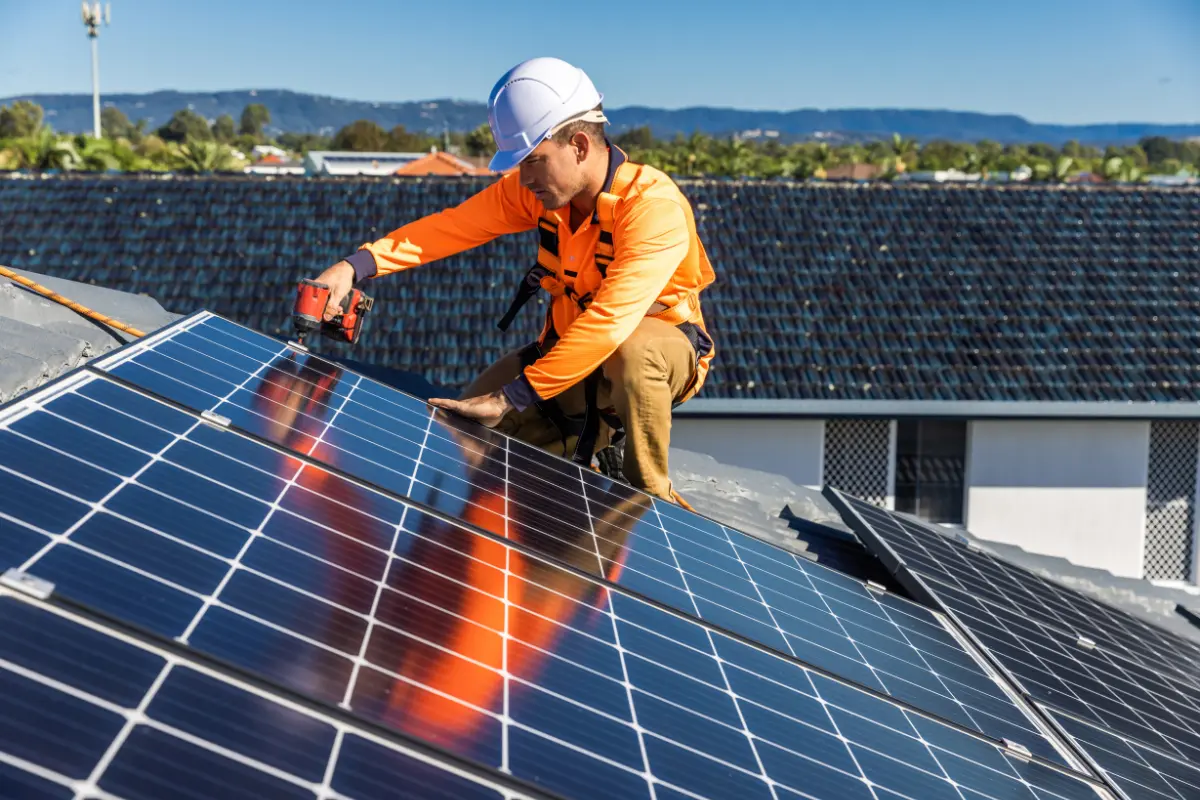Empowering Sydney: A Comprehensive Guide to Commercial Solar Systems
A. Brief overview of the importance of renewable energy in combating climate change:
Renewable energy sources, like solar power, play a pivotal role in mitigating climate change by reducing reliance on fossil fuels. They offer a sustainable alternative, emitting fewer greenhouse gases and minimizing environmental degradation. Transitioning to renewables is crucial in meeting global emission reduction targets and safeguarding the planet for future generations.
B. Introduction to the role of commercial solar systems in Sydney, Australia:
Sydney, a city abundant in sunlight, has immense potential for harnessing solar energy to meet its power needs sustainably. Commercial solar systems, comprising rooftop panels or ground-mounted arrays, offer businesses an opportunity to reduce their carbon footprint while cutting energy costs. They contribute to Sydney’s transition towards a cleaner, greener energy landscape, promoting sustainability and economic growth.
C. Purpose of the blog: to educate businesses in Sydney about the benefits and implementation of commercial solar systems:
This blog aims to empower businesses in Sydney with knowledge about the advantages and practicalities of adopting commercial solar systems. By providing insights into cost savings, environmental benefits, and the implementation process, it seeks to demystify solar technology and encourage businesses to embrace renewable energy solutions. Ultimately, the goal is to facilitate informed decision-making among Sydney’s business community, driving the adoption of sustainable practices and fostering a greener future.
Understanding Commercial Solar Systems
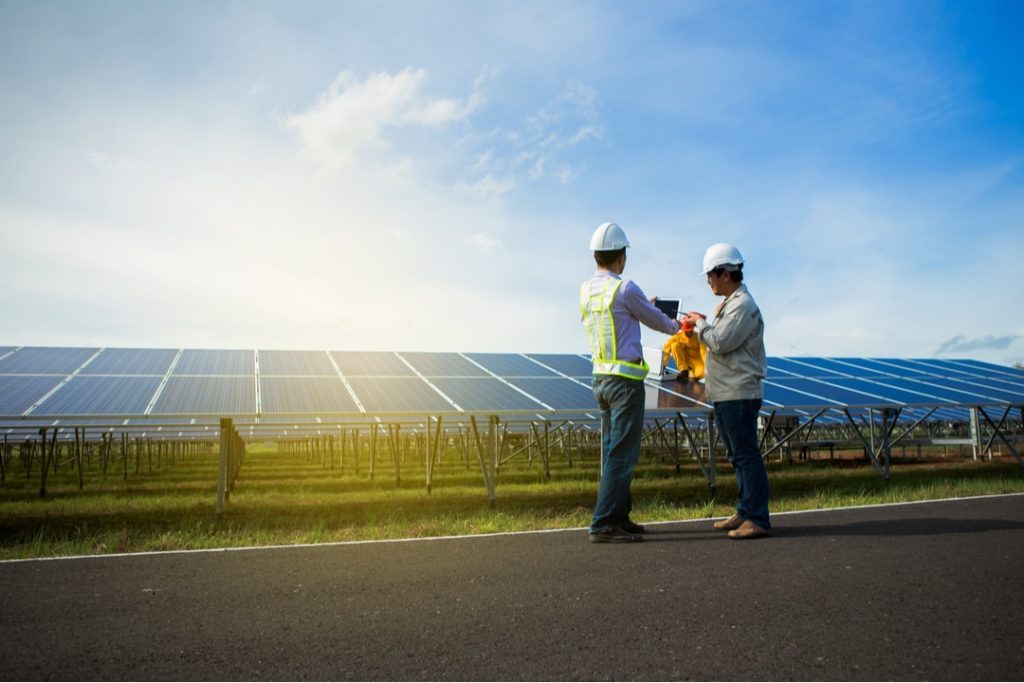
A. Explanation of what commercial solar systems are:
Commercial solar systems are renewable energy solutions designed to generate electricity for commercial and industrial properties. They consist of solar panels installed on rooftops or ground-mounted structures, which convert sunlight into electricity through photovoltaic cells. These systems integrate with existing electrical infrastructure to provide a sustainable and reliable source of power for businesses.
B. Types of commercial solar systems:
Commercial solar systems encompass various configurations tailored to suit different business needs. Common types include rooftop solar panels, which are mounted on the roofs of commercial buildings, and ground-mounted systems, which are installed on open land adjacent to the property. Other options may include solar carports, solar canopies, or solar trackers, each offering unique advantages depending on space availability and project requirements.
C. Components of a commercial solar system:
Commercial solar systems comprise several key components working together to harness and convert solar energy into usable electricity. These components typically include solar panels, which capture sunlight and generate DC electricity, inverters, which convert DC electricity into AC electricity suitable for use, mounting structures, which secure the solar panels in place, and monitoring systems, which track energy production and system performance.
D. Factors influencing the selection of a commercial solar system:
Several factors influence the choice of a commercial solar system, including the energy needs of the business, available budget, and space constraints. Businesses must consider their electricity consumption patterns, peak demand, and future growth projections when sizing the system. Budget considerations involve upfront costs, financing options, and potential return on investment. Additionally, available space on rooftops or land dictates the type and size of the solar system that can be installed, along with any regulatory or structural limitations.
Benefits of Commercial Solar Systems
A. Environmental benefits:
Commercial solar systems contribute significantly to environmental conservation by reducing greenhouse gas emissions, including carbon dioxide and other pollutants, associated with conventional energy generation. By harnessing clean, renewable solar energy, businesses can lessen their carbon footprint and mitigate climate change. Additionally, solar energy helps conserve natural resources by decreasing reliance on finite fossil fuels and minimizing environmental degradation from extraction and combustion activities.
B. Financial benefits:
Adopting commercial solar systems offers businesses substantial financial advantages. By generating electricity from sunlight, businesses can lower their electricity bills, providing long-term cost savings and improved financial stability. Moreover, governments often provide incentives and rebates to promote solar adoption, further reducing upfront costs and enhancing the financial attractiveness of solar investments. These incentives may include tax credits, grants, feed-in tariffs, or net metering programs, depending on the jurisdiction.
C. Long-term savings and return on investment:
Commercial solar systems offer businesses the opportunity for significant long-term savings and a favorable return on investment. While the initial investment in solar equipment and installation may require upfront capital, the reduced electricity costs over the system’s lifespan typically result in substantial savings. As solar technology continues to improve and operational costs decline, the payback period for solar investments shortens, increasing the overall financial viability and attractiveness of solar energy for businesses.
D. Enhanced corporate social responsibility and brand reputation:
Embracing solar energy demonstrates a commitment to corporate social responsibility (CSR) and sustainability, enhancing a company’s brand reputation and stakeholder perception. By reducing their carbon footprint and environmental impact, businesses can align with consumer values, attract environmentally conscious customers, and differentiate themselves from competitors. Additionally, investing in renewable energy projects contributes to a positive public image, fostering goodwill within the community and strengthening relationships with stakeholders, including customers, employees, investors, and regulators.
Planning and Implementation Process
A. Initial assessment and consultation with a solar provider:
The first step in adopting a commercial solar system involves conducting an initial assessment and consultation with a reputable solar provider. During this stage, businesses discuss their energy needs, budget constraints, and sustainability goals with solar experts. The solar provider evaluates the feasibility of solar installation based on factors such as available space, sunlight exposure, and regulatory requirements.
B. Site evaluation and feasibility study:
Following the initial consultation, a comprehensive site evaluation and feasibility study are conducted to assess the suitability of the business premises for solar installation. This involves analyzing factors such as roof orientation, shading, structural integrity, and electrical infrastructure. By conducting a thorough feasibility study, potential obstacles or limitations to solar deployment can be identified and addressed proactively.
C. System design and customization to meet specific business needs:
Once the feasibility of solar installation is confirmed, the solar provider proceeds to design a customized system tailored to meet the specific energy needs and requirements of the business. This involves selecting appropriate solar panel configurations, inverters, mounting structures, and other components to optimize energy production and maximize return on investment.
D. Permitting and regulatory compliance:
Before commencing solar installation, businesses must obtain the necessary permits and ensure compliance with local regulations and building codes. The solar provider assists in navigating the permitting process, obtaining approvals from relevant authorities, and ensuring that the solar system meets all regulatory requirements for safety, performance, and environmental impact.
E. Installation process and timeline:
Once all permits are secured and regulatory requirements are met, the solar installation process begins. This typically involves mounting solar panels on the roof or ground, installing inverters and other system components, and connecting the system to the electrical grid. The installation timeline varies depending on the size and complexity of the project but is typically completed within a few days to weeks.
F. Post-installation monitoring and maintenance:
After the solar system is installed and operational, ongoing monitoring and maintenance are essential to ensure optimal performance and longevity. The solar provider may offer monitoring services to track energy production, detect any issues or malfunctions, and optimize system performance. Regular maintenance, such as cleaning panels, checking connections, and inspecting components, helps prevent downtime and maximizes the lifespan of the solar system.
Conclusion
A. Recap of the key benefits and considerations of commercial solar systems:
Commercial solar systems offer numerous benefits for businesses in Sydney, including environmental sustainability, cost savings, and enhanced brand reputation. By harnessing clean, renewable solar energy, businesses can reduce their carbon footprint, lower electricity bills, and demonstrate corporate social responsibility. Key considerations for adopting commercial solar systems include conducting a thorough assessment of energy needs, exploring financing options to overcome upfront costs, addressing potential technical issues through proactive maintenance, and navigating regulatory requirements.
B. Encouragement for businesses in Sydney to consider transitioning to solar energy:
As businesses in Sydney navigate the challenges of a rapidly evolving energy landscape, transitioning to solar energy presents an opportunity to embrace sustainability, reduce operating costs, and future-proof against rising energy prices. By harnessing the abundant sunlight available in Sydney, businesses can take proactive steps towards environmental stewardship while realizing tangible financial benefits. Embracing solar energy not only aligns with global efforts to combat climate change but also positions businesses as leaders in sustainable practices, driving innovation and fostering a greener future for generations to come.
C. Call to action for interested businesses to reach out for more information and consultation:
Interested businesses in Sydney are encouraged to take the first step towards solar energy adoption by reaching out for more information and consultation with experienced solar providers. Whether exploring the feasibility of solar installation, seeking financing options, or navigating regulatory requirements, professional solar providers can offer tailored solutions and expert guidance to support businesses throughout the process. By partnering with reputable solar experts, businesses can unlock the full potential of commercial solar systems, realizing both environmental and financial benefits while contributing to a more sustainable future.
Related Searches: commercial solar systems Sydney, commercial solar systems Brisbane and commercial solar system Melbourne

